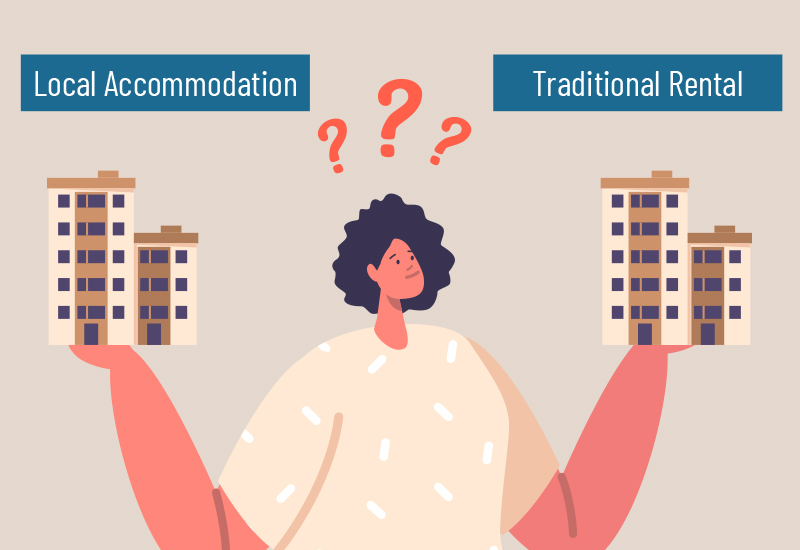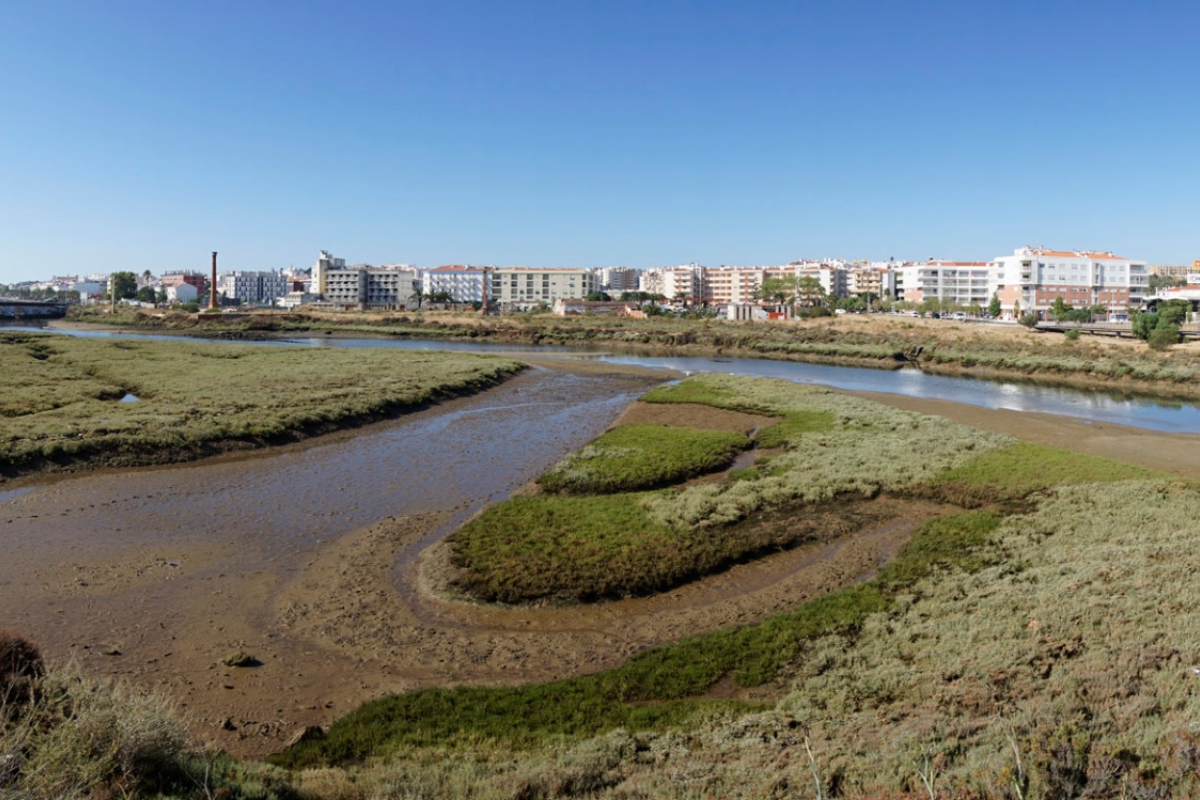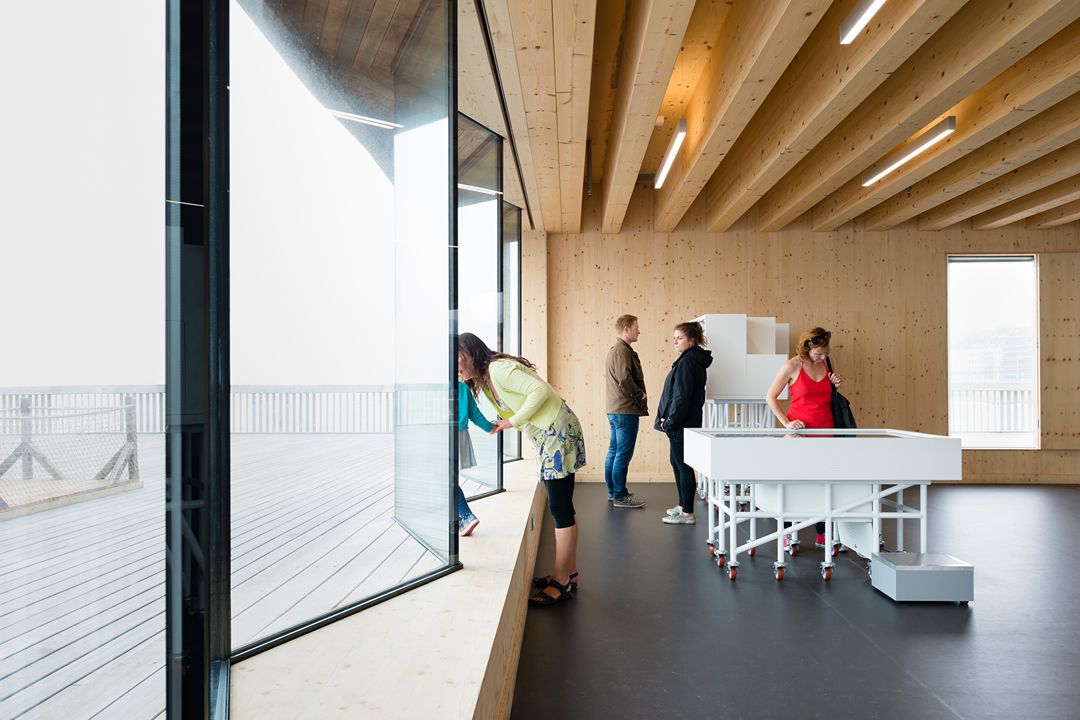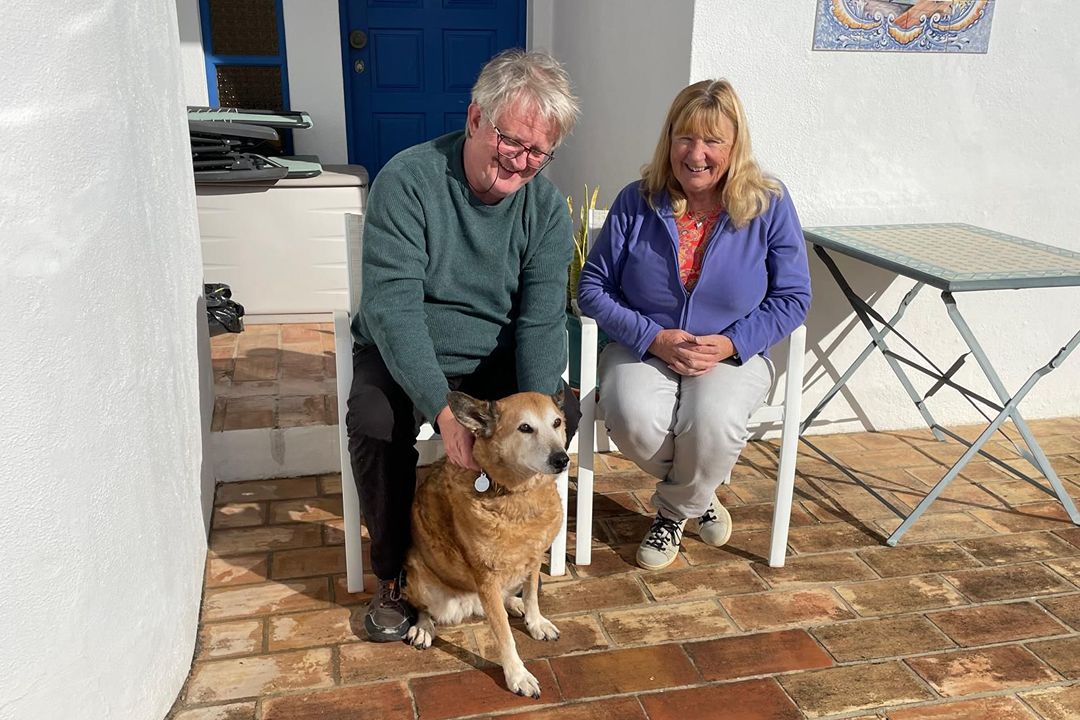Do you own a property in Portugal that you don’t use year-round? Instead of keeping it closed, have you considered making it profitable? When choosing between Alojamento Local (local accommodation) and traditional rental, there are legal, fiscal, and logistical advantages and disadvantages that must be weighed before making a decision.
This is the question many real estate investors in Portugal ask. In fact, in 2019, Alojamento Local accounted for around 40% of overnight stays in Portugal and, for 39% of property owners, income from Alojamento Local represents more than half of their household budget.
What Should You Consider Before Choosing?
When it comes to maximising your property’s profitability, you shouldn’t only consider the financial factor. You must also consider the type of property you own, its location, and the logistics involved in either of the two rental options.
Legalisation and Mandatory Requirements
If you’ve decided to enter the world of Alojamento Local, you must request a licence from the relevant city council. However, there are other obligations to consider before making this request. These include opening an activity with the tax authority, contracting a civil liability insurance, and equipping the property with the necessary safety equipment and mandatory signage.
Once these tasks are completed, you can proceed with submitting the application to the city council, which may take up to 60 business days for properties outside containment zones or 90 business days for those located within such zones. After registration is granted, the city council may inspect the property within 30 days to verify compliance with legal and safety requirements.
On the other hand, if you’re considering joining the traditional long-term rental market, you must be aware of the obligation to draft a written rental contract that complies with legal formalities. The contract must have a minimum duration of one year and a maximum of 30 years. It’s also important to note that for permanent residential leases signed after February 2019, contracts are automatically renewed for three years if the initial period is shorter.
After signing your rental agreement with your tenant, you must register it on the tax department portal and pay the applicable stamp duty for the contract.
Tax Differences Between AL and Traditional Rental
Are you aware of the tax implications associated with each rental option? For Alojamento Local, your income is classified as business income under Category B of your personal income tax (IRS). Traditional rental income, however, falls under Category F – Real Estate Income.
Local accommodation is VAT-exempt until your annual turnover reaches €15,000. After exceeding that threshold, VAT is applied, and you must submit mandatory quarterly declarations. However, local accommodation allows the deduction of business-related expenses (cleaning, maintenance, utilities, commissions, etc.).
Traditional rental income is subject to a tax rate of 25% on rents received. This rate can be reduced depending on the contract duration and residential leases are VAT-exempt.
Also, both rental regimes require the issuance of receipts.
Risks and Benefits of Each Model
When weighing the pros and cons of each model, one cannot ignore the battle between high turnover in AL and the stability of traditional rental.
The truth is that traditional rental ensures the tenant will use the property in a similar way to the owner, which means there’s no need for constant cleaning or maintenance, nor for check-ins as in AL.
However, long-term rentals raise some concerns among owners, such as tenant management, maintenance during the owner’s absence, and the lack of frequent inspections. Perhaps the biggest fear is non-compliance with contractual obligations, especially rent payment and the potential need for eviction.
Conclusion: What Is Best for You?
- To make an informed decision, ask yourself:
- Is my property located in a tourist area?
- Am I willing to be more actively involved in management?
- Do I prefer predictable income, or am I open to more risk for potentially greater profit?

Solicitor, Professional License No. 8847
Praça do Poder Local, 8600-527 Lagos
+351 924 187 339












